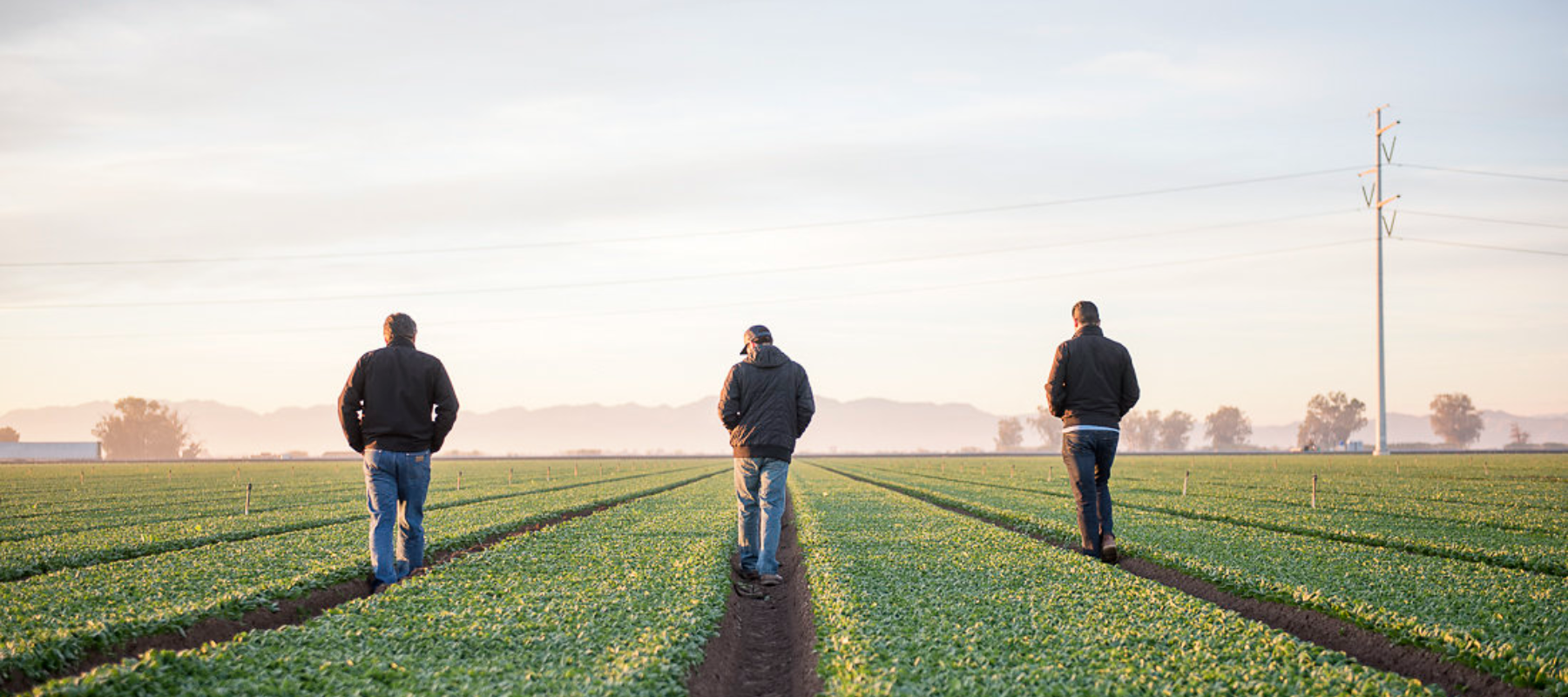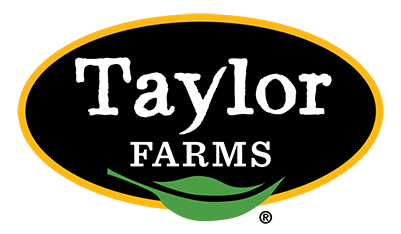2024 Earth Month: How Taylor Farms Approaches Resource Conservation

At Taylor Farms, we are committed to the idea that every salad kit and package of fresh vegetables can contribute positively to society and the environment through responsible practices and investments. We believe that the cultivation, processing, packaging, and shipping of each Taylor Farms product plays a vital role in this impact. By carefully managing our farming practices and energy consumption, and continuously improving our packaging and food material management, we strive to create a healthier environment for future generations.
We focus efforts on resource conservation through 5 main areas: energy, material management, water stewardship, soil health and biodiversity, and sustainable packaging. Let’s look at each of these below.
Energy
Year over year we continue to invest in renewable and alternative energy in our operations. Our energy strategy prioritizes resiliency and renewability to assure supply at the lowest environmental impact possible. We utilize a combination of solar power, wind power, energy storage, and fuel cells.
To date, Taylor Farms’ diverse portfolio of energy assets includes:
- 12 solar installations 8.90 MW
- 3 fuel cell installations 10 MW
- 1 energy storage system (battery) 2 MW
- 1 wind turbine 1 MW
In 2023, these energy assets generated 42,007,796 kWh of electricity, equivalent to approximately 4,000 US households’ annual electricity use (EIA). Our solar installations alone reduced emissions by an estimated 2,359.77 MT CO2e in 2023, the same as removing 562 gas-powered vehicles off the road for one year. (EPA)
Material Management
We recognize that waste is a sign of inefficiency. Through our material management programs, we commit to reducing waste generation and diverting as much waste as possible from landfills and incineration.
With our focus on upstream waste management, we have explored a diverse array of best practices, including redesign, reduction, and reuse, in addition to recycling and composting. We have several facilities participating in our material management program, with five of them being third-party certified by TRUE (Total Resource Use Efficiency) – a program that validates an operation’s efforts related to solid waste management and achieving zero waste.
Most recently, in February 2024, the Taylor Farms San Juan Bautista facility achieved a TRUE certification with a 12-month average diversion rate (i.e. the portion of an operation’s waste generation that is diverted from landfill or incineration) of 91.7%. By following TRUE guidelines and exploring innovative solutions, the facility diverted 34,902 short tons of solid waste from landfills, incineration, and the environment.
Reducing Food Loss and Waste
Reducing food loss is essential for creating a more sustainable food system that is both environmentally friendly and socially responsible. It also means that consumers are getting the freshest products possible, whether they’re purchasing a salad blend or a meal kit.
Taylor Farms’ Fresh-to-Shelf strategy is focused on freshness and reducing food loss & waste in the following ways:
- Finding ways to combine multiple product segments on the same delivery truck.
- Reducing days-in-transit and increasing delivery frequency to make sure the freshest products are on the shelves.
- Partnering with local food banks and organizations such as The Farmlink Project and Brighter Bites to address food insecurity and education.
- Decreasing spill-over on production and processing lines and finding diversion outlets for organic materials.
Through our partnership with Farmlink, we diverted over 3.8 million pounds of product from landfills and incineration in 2023.
Water Stewardship
Water is essential to Taylor Farms products. Our facilities and growing operations understand that water is incredibly important and increasingly scarce. We are continually looking to make improvements in water use efficiency.
At Taylor Farms, we view water stewardship holistically:
- Where and how we source our water: Using WRI’s Aqueduct, we are able to closely monitor water quality and availability risks as well as potential regulatory risk.
- Irrigation efficiency: Depending on the crops’ requirements, we use center pivot sprinkler systems, drip irrigation water systems, and we’ve also developed a uniform water spray system program to maximize irrigation efficiencies and reduce total demand.
- Protection of water quality & soil health: We employ irrigation management practices that maximize crop yield while avoiding environmental contamination of leaching to soil and groundwater.
- Facility advancements: We optimize water distribution networks within our sites and are working with technologies such as reverse osmosis (RO) that can help us recycle and reuse upwards of 75% of our water consumption. ), clarifiers, and ultrafilters that can could help us recycle and reuse upwards of 75% of our water consumption.
- We are also working on tighter controls to minimize discharges and improve equipment configurations and sensors that will allow for smarter decision-making and reduce production line spillage.
Soil Health & Biodiversity
Taylor Farms Agricultural Operations (the Growing Operations of Taylor Farms) continually optimizes our growing practices on our 19,332 acres across California and Arizona. We were one of the first to implement organic growing practices and take those best practices to our conventional ranches. Most recently, we have:
- Installed 50 barn owl boxes throughout our Central Coast ranches to encourage natural pest predation.
- Planted over 2,500 native plants as permanent insectaries through a collaboration with the Xerces Society (an international non-profit organization that works to protect the natural world through protection of invertebrates and their habitats). Together with Xerces, we selected plants that support native bees and other beneficial insects and plan to expand this project.
- Planted over 12% of our ranches (1,367 acres) with diverse cover crops such as mustards, rye, triticale, vetch, and clover to improve water infiltration during the winter rainy season and to scavenge nitrogen from the soil.
- In our agronomy lab, we are running hundreds of aggregate stability and CO2 respiration tests to monitor soil health changes over time.
- Completed beneficial insect releases utilizing drones through Parabug. Drones release beneficial insects to consume pests such as aphids and thrips while also reducing in-field activity and reducing soil compaction.
- We intercrop alyssum in our organic transplanted crops such as broccoli, cauliflower, cabbage, and romaine to ensure habitat for naturally occurring and drone released beneficial insects, reducing the need for pesticide application and equipment passes on the soil.
- Explored regenerative practice integration, entering 70+ acres into Regenerative Organic Certification (ROC).
Used reverse mulching technology to cut cultivation passes through the fields by 50%. Explored regenerative practice integration, entering 70+ acres into Regenerative Organic Certification (ROC).
Sustainable Packaging
Packaging plays a vital role in extending shelf life, reducing food waste, enhancing convenience, and as a result, encouraging the consumption of healthy fresh foods – a mission we firmly believe in. Over our history, we have made significant investments in technology that further reinforces the role of packaging.
We echo our customers’ appetite for more sustainable packaging. We recognize the urgent need for packaging that has a reduced environmental impact without compromising its functionalities. For this reason, our internal teams are constantly searching for and working on incorporating ‘green’ innovations, such as:
- design for circularity
- improved material types, sourcing, and manufacturing processes
- use of recycled content
- informative and educational labeling
- improved end-of-life disposal capabilities
Our deli division is gradually replacing virgin plastic packaging with certified compostable fibers or bioplastics. In 2023, we launched three sets of fiber trays with PLA lids that are made of PFAS-free plant-based materials and that meet the ASTM standards for compostability. We will continue our work in 2024 with plans to introduce compostable utensils, trays, salad bowls, and many more. Meanwhile, our retail division continues to expand the transition from rigid lids to a Peel + Reseal film lid to pair with our trays partially made with post-consumer recycled plastic. With each shift to this new lid, we reduce the plastic usage of the entire package by 27%, helping eliminate approximately 3.5 million pounds of plastic per year.
We also know that we cannot manage what we don’t measure. Through our investments in spec management and life-cycle analysis tools, we keep records of our packaging data, allowing for change tracking and smarter decision-making.
At Taylor Farms, we challenge ourselves every day to grow our business as responsibly as possible. The future and health of our business depends on our ability to conserve resources, maximize efficiencies with the resources deployed, and to seek new solutions for tomorrow.
